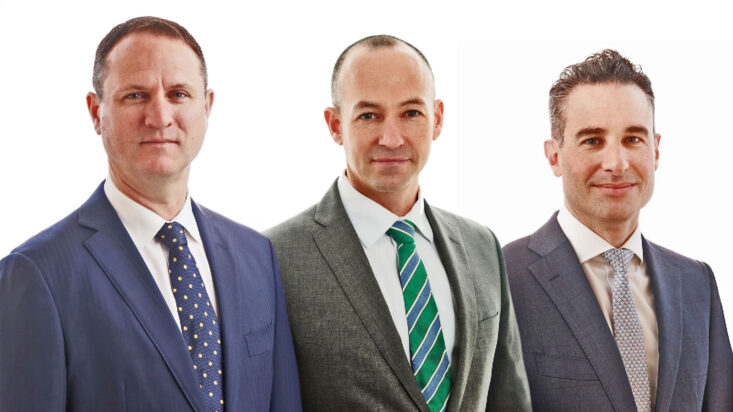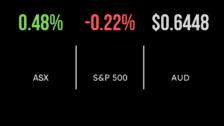Private lending will be key to an economic recovery
Middle market companies contribute close to 25 per cent of Australia’s GDP and employ a similar portion of the population according to consulting firm BDO. Simply defined as those companies with a turnover between $25 million and $500 million, most would agree this is the growth engine of the Australian economy. Yet increases in global and local regulation since the Global Financial Crisis, and more recently the Royal Commission, have starved this sector, which represents 80% of all merger and acquisition activity, of capital.
One of the key responses of the GFC was to ‘simplify’ the banking sector so they would be ‘unquestionably strong’ in the event of another crisis. The regulatory response was to increase the amount capital banks must hold against what is perceived as ‘higher risk’ loans that are not secured by residential property.
Naturally, the response of the Big Four Banks was to focus on the sector which offered the greatest return on capital. For example, if with a single dollar you were able to make a loan of $5 or $10, and charge equal fees on both, which would you choose?
This favourable treatment of residential property loans has seen property prices move well beyond even optimistic expectations and lead to unfavourable treatment of loans to one of the most important sectors of the Australian economy. The middle market sector is incredibly diverse, including 35,000 individual companies, more than 15 times the number of large companies in the country. They operate across every sector of the economy from healthcare and manufacturing, to data, food and technology. So why are they being starved of capital?
Put simply, they have been placed into the ‘too hard basket’. The undersupplied sector is estimated at $70 billion in size with $20 billion in loans being required each and every year to support growth and one-off events such as change of ownership. But to be successful in the sector requires experience and a unique understanding of a diverse range of industry sectors and their associated risks. Enter Epsilon Direct Lending, a specialist middle market direct lender. The founding of Epsilon is a reflection of the banking industry itself.
The three founding partners, Mick Wright-Smith, Joe Millward, and Paul Nagy grew the Commonwealth Bank’s Corporate Finance Team from two staff to twenty-five over a decade providing growth and event-driven loans solely to middle-market companies. These types of loans are typically made on a bilateral basis, meaning they are negotiated directly between the borrower and the lender. They are rarely syndicated unlike many of the popular debt products being made available to wholesale investors today, primarily because this reduces any negotiating power, both upon establishing the loan, and in the event of default.
Outside of their extensive networks and experience, which they say delivers some 80 per cent of their completed loans, Epsilon differentiates themselves by focusing on a specialised pocket of this fast-growing sector. They will lend only to ‘performing’ companies, i.e. well established and profitable companies who are not experiencing any financial stress. Perhaps most importantly, they will lend solely for growth and event-driven purposes, whether that is the acquisition of another business, a loan to support expansion, or to support change of ownership. “At Epsilon we are genuinely driven as a team by the vision and responsibility of being part of the future funding solution for middle market Australia”, says Mick Wright-Smith. It is this focus on partnering with, rather than just lending to companies, that means the group is able to target some of the most attractive, risk-adjusted returns in the sector.
The team is seeking to initially partner with just 15-20 high quality companies, providing individually structure, predominantly senior secured loans of between $10 to $50 million, with terms typically of three to five years. The loans will be made on a floating rate basis, and the portfolio is expected to deliver investors a targeted total net return of around 6% above the bank bill swap rate. Why does this matter? Whilst investors have been able to access private credit markets for some time, they have had limited access to middle market direct lending. “Ultimately we are offering investors access to attractive lending opportunities they cannot access themselves. This delivers predictable and recurring income, capital preservation, low volatility and low correlation to other asset classes – including other private debt strategies”, says Paul Nagy.
Direct lending could be described as Fixed Income 2.0. The traditional reasons for holding government bonds was to provide a consistent income, capital protection and returns not correlated with equity markets, much of which has now disappeared. Consider for instance, that in order to offset a 10 per cent fall in sharemarkets, the US government bond yield would need to fall from +0.9 per cent to -0.6 per cent; possible, but clearly very unlikely.
Specialised direct lending, on the other hand, is able to offer quarterly cash income of at least 4 per cent over the bank bill swap rate from senior loan positions. The senior security means private lenders like Epsilon are first in line for the company’s assets should something unexpectedly go wrong. The team has long-standing relationships with respected and highly successful private equity groups including Advent Partners, Next Capital, and The Growth Fund. Borrowers appreciate the speed, certainty, and flexibility that comes with working with a specialist team, rather than a large syndicate of many lenders. Most importantly for investors, they are more than willing to pay a premium for a bespoke funding solution and this dedicated service. “We think investors are excited by the prospect of backing the growth of real Australian operating businesses. These are businesses that employ millions of people and contribute hugely to our economy and society” says Joe Millward.










